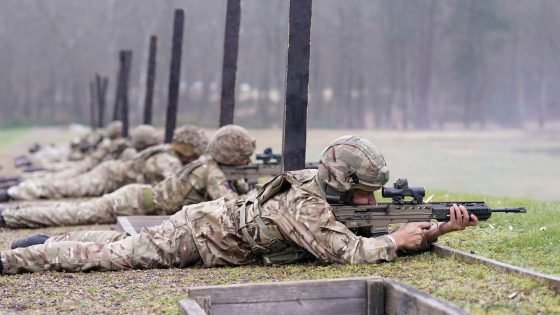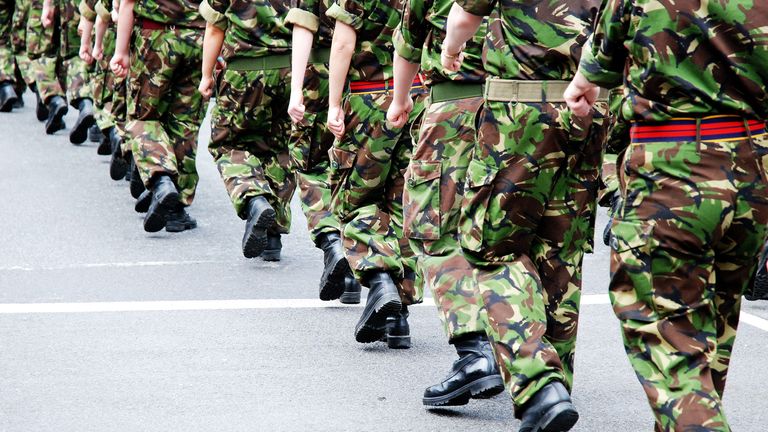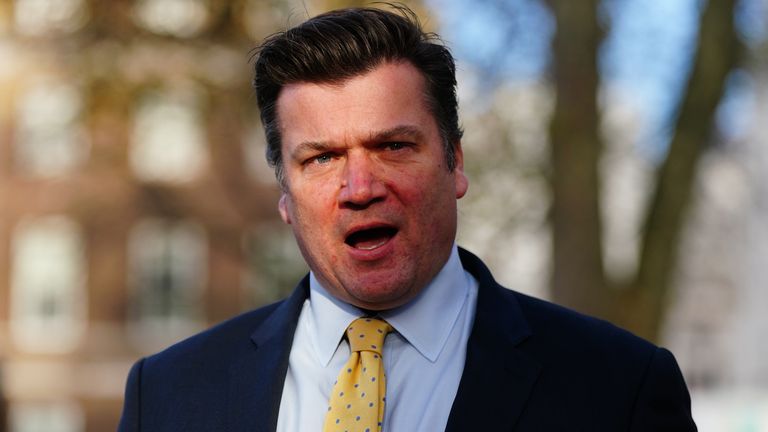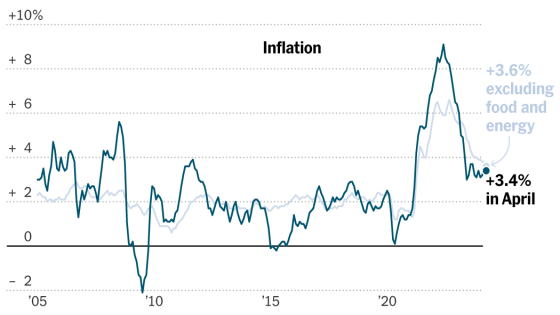Preparing the nation for war is the best way to maximise the chance of peace – but the UK is a “very long way behind”, a former defence minister has warned.
In a sign of how alien the idea of armed conflict has become to most officials in Whitehall, James Heappey said many departments had declined the chance to take part in a “whole of government” exercise to practice evacuating to a bunker in the event of war.
It was a drill former defence secretary Ben Wallace had pushed for “to get people down to the bunker so they could see what their working environment in war would be”, Mr Heappey wrote in an article for the Sunday Telegraph.
“In the end, rather depressingly, it was just defence ministers, senior military officers and MoD (Ministry of Defence) officials that participated.”
This was a shame because the exercise “would have exposed how out of date many of our procedures now are”, Mr Heappey, who resigned as armed forces minister last month, said.
His damning intervention came after Sky News this week revealed that the government has no national plan for the defence of the UK or the mobilisation of its people and industry in a war despite renewed threats of conflict.
Officials have started to develop a cross-government “national defence plan” amid warnings from ministers that the UK has moved into a “pre-war world”.
But any shift back to a Cold War-style, ready-for-war-footing would require political leaders to make defence a genuinely national effort once again, sources told Sky News.
Mr Heappey said there must be a new focus on strategic resilience – such as securing food and energy supplies and repurposing industry to build weapons – as well as more money for defence.
Piling pressure on Rishi Sunak, he wrote: “Only a foolish PM wouldn’t see that the long-term trend is towards global instability that could easily lead to a new cold war and perhaps something even hotter.
“Preparing for war now both through increasing spending on defence but also through a focus on our strategic resilience is the best way to maximise the chance of peace.”
Mr Heappey said he did not believe World War Three was imminent but he heaped praise on Sweden for how it has prepared its citizens for potential conflict.
He described receiving a booklet from the Swedish civil defence minister which explained what citizens should do in time of war, including the sort of provisions they should hold.
“He gave me a copy of that booklet and I kept it on my desk thereafter. It’s a stark reminder that war is a whole nation endeavour and, to be frank, in the UK we’re a very long way behind.”
Read more from Sky News:
Protests in Tel Aviv after ‘half a year of hell’
Royal Navy ship to be deployed for Gaza aid
World’s oldest living man reveals secret to long life
On the bunker drill, the former minister said that all secretaries of state – not just defence – have a desk and a bed ready for them in a bunker.
This is not so they are able to survive a nuclear attack “for re-populating our islands after the apocalypse” but “because their departments are as integral to the war effort as the MoD”.
It was a fundamental part of working in government during the Cold War – a discipline that has all-but disappeared despite renewed threats from Russia following Vladimir Putin’s full-scale invasion of Ukraine as well as war in the Middle East and concerns about China.
“I suspect there are plenty of cabinet ministers who don’t even know where their desk or bed in the bunker is,” Mr Heappey wrote.
“There might even be one or two who don’t even know where the bunker is!”
The UK once had a large network of bunkers, built during the Cold War, to help keep some form of regional governments running in the event of a nuclear attack by the Soviet Union.
However, most of these subterranean safe-houses stopped being used in the 1990s when the Cold War ended.
Source Agencies






